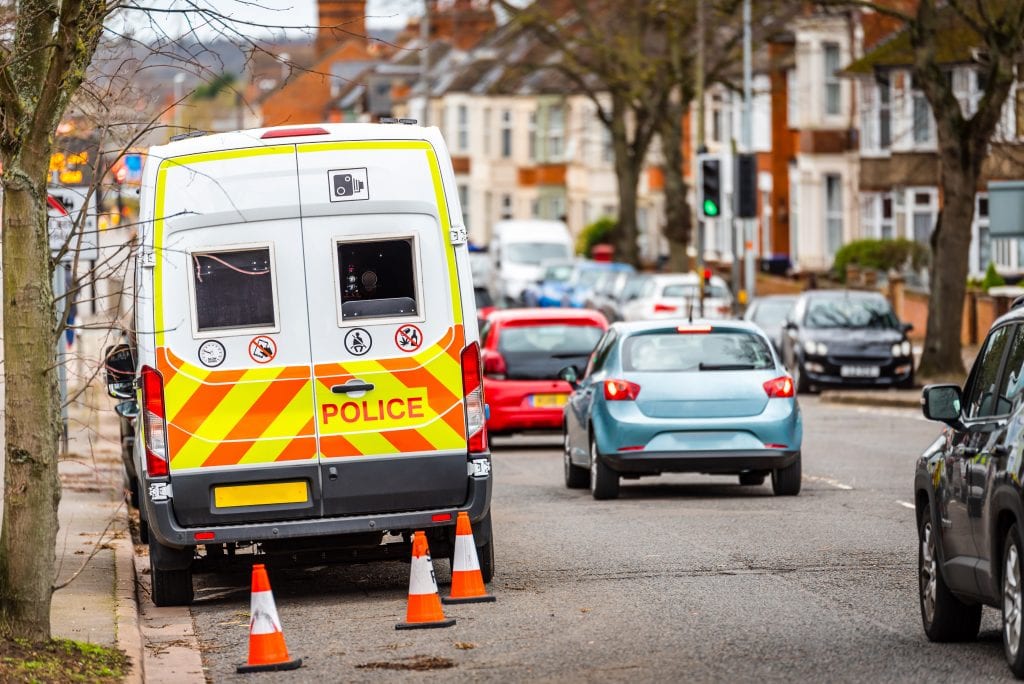UK speed cameras are an effective way to reduce the number of vehicle accidents and road deaths each year. With their main purpose to keep all road users safe, why do some drivers take chances with speed cameras? There are many myths surrounding speed cameras and how they operate. It’s best to not listen to the rumor mill and stick to the law.
Let’s take a look at the most common speed camera myths and if they are true or false!
1. Speed cameras are ALWAYS watching
FALSE
It should not be taken lightly that some speed cameras aren’t actually switched on all the time. You should always stay within the speed limit to keep yourself and other road users safe and avoid getting a speeding fine. A Spokesperson from the road safety charity Brake said, “Various freedom of information requests have revealed that some speed cameras in the UK are not fully operational.” Many speed cameras in the UK have been switched off due to cuts in road safety grants however drivers aren’t aware which speed cameras are off so it’s always best to stick to the speed limit.
2. You can’t get caught speed on the other side of the road
FALSE
Many motorists believe that if a speed camera is located on the other side of the road, then you can’t get caught speeding. However, this is not strictly true. Fixed speed cameras can’t usually catch motorists on the other side of the road but mobile police vans or manually operated speed guns most certainly can. Mobile vans can be parked anywhere at any time so it’s best to always stick within the limit.
3. You can request a speed awareness course
FALSE
Speed awareness courses are usually offered to people who have been caught speeding for the first time or have not completed a speed awareness course in the past 3 years. You will be contacted by your local policing authority with your options if you have been caught speeding, but you cannot request a speed awareness course for yourself.
Related content – When will driverless cars come to the UK?
4. You must be notified of a speeding fine within 14 days of the offence
TRUE
The law states that a driver who has been caught speeding by a fixed speed camera must be notified within 14 days of the offence. If the Notice of Intended Prosecution is sent after this time, it is invalid. The notice will be sent to the individual that the vehicle is registered to.
5. You must be 10% over the speed limit to get fined
FALSE
This is a speed camera myth that many drivers adhere to. The law states that a driver can receive a speeding fine as soon as they exceed the speed limit. However, it can be confusing as guidance from the NPCC says that you can’t get prosecuted until you have exceeded the speed limit by 10% + 2. For example, in a 30mph zone, you would receive a speed fine once you were driving at 35mph. It is important that you don’t take this guidance as law, and you can always still receive a speeding fine if you exceed the limit.
6. Speed cameras must be painted yellow to get caught
FALSE
Many fixed speed cameras in the UK are typically painted yellow and the UK government has plans to have all speed cameras the same yellow colour. However, a speed camera is still a speed camera at the end of the day, despite its colour. There is no law to say that a speed camera must be yellow.
7. Speed cameras can catch you using your mobile phone
TRUE
In 2019, the UK introduced new HD speed cameras which are able to detect if drivers are using their mobile phone sat the wheel. These cameras can take images of distracted drivers and you could face a fine of up to £200 and six points on your licence.
8. Speed cameras flash when you are caught
FALSE
Many motorists have breathed the sweet sigh of relief when a speed camera hadn’t flashed at them but it’s a common myth that they must flash for you to be detected. There are a variety of different types of speed cameras in the UK and not all of them have a flash.
Regardless of the myths surrounding speed cameras and what you can and can’t get away with. You should always drive safe and stay within the speed limit. This not only protects yourself and your passengers but all other road users and pedestrians. It can also cost you penalty points and a speeding fine and if you are a repeat offender you can also lose your driving license altogether.

